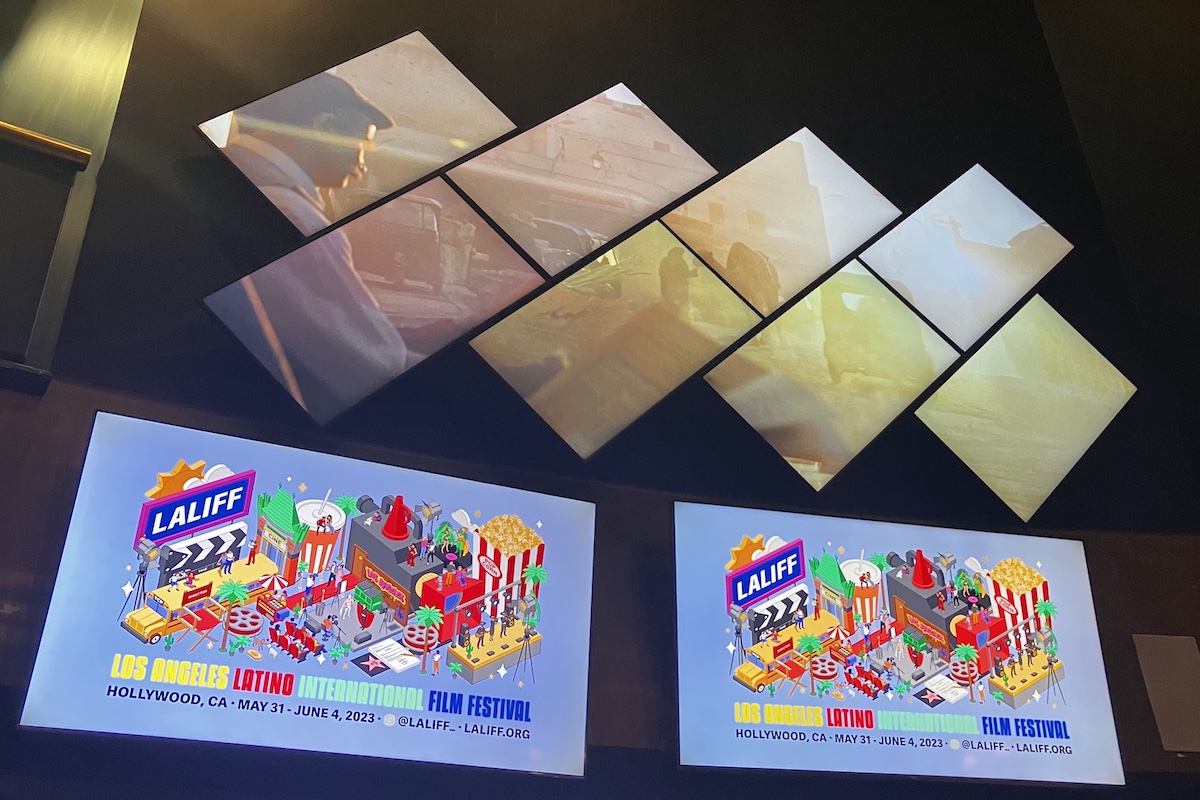

Photo by Cristina Escobar/Latino Rebels
LOS ANGELES — Earlier this year, I went to the Sundance Film Festival and attended all the Latinx stuff—the panels, the screenings, the parties. It was amazing to see us taking up space at such a storied and culturally-significant institution, and by “taking up space,” I mean getting and spending dollars. Sundance is expensive, so the investment in and by our community there was real and costly.
Watching all that, though, I couldn’t help but wonder if those same forces that showed up to support Latinxs at Sundance were investing in institutions made by and for us.
I think the larger answer is no, but I wasn’t about to let that apply to me. So I packed my bags and headed to the Los Angeles Latino International Film Festival (LALIFF), admittedly an easier event to attend (no special snow boots needed).
And what I found there was a beautiful, rich community that’s doing something quite different from Sundance and other mainstream festivals. Yes, there’s the obvious focus on Latino communities, but it’s more than that.
LALIFF is part of the Latino Film Institute, which has programs that start in elementary school and go through to adulthood, encouraging and supporting Latinos to make films. Obviously, an in-school program is pretty different than a professional association (I’m looking at you, LatinX in Animation) but the common goal is clear—to get our stories told.
And tell them they do. LALIFF has a fancy red carpet‚you may have seen Eva Longoria’s interview this year, talking about her Flamin’ Hot film.
But at LALIFF, that same red carpet is walked by students and emerging filmmakers. Indeed, their films screen next to the indie and studio titles, building an event that showcases a true range of creativity.
Further driving home this point was Edward James Olmos, LALIFF co-founder. He rattled around the festival, seemingly creating a real Where’s Waldo game of any LALIFF crowd shot (pro tip: look for his hat). In my three days there, I saw him taking countless photos with kids and hob-knobbing with VIPs. At LALIFF, the stars do both.
Even the definition of “star” is different. Yes, Spider-Man: Across the Spider-Verse showed there, as did Shea Serrano’s Primo, Gloria Calderon Kellett’s With Love and Julio Torres’ Problemista.
But the house was also packed for the Afro/Black Inclusion Fellowship showcase. Combined with the Indigenous cohort, this group of 10 filmmakers receives support from LALIFF to make short films, which then premiere at the festival. This year’s group was truly impressive, spanning in genre from horror to comedy and touching on themes ranging from body dysmorphia to parental expectations. As Rafael Agustín, Latino Film Institute CEO, noted in his introductions of the showcases, “Ever since the inception of this fellowship, one fellow and their film has qualified for the Academy Awards for the best live-action short film… no pressure!”
All of this inclusion is purposeful. Ahead of the festival, Diana Cadavid, artistic director for LALIFF, shared how she programs the lineup with an eye toward the type of diversity other festivals only gesture towards. For example, Cadavid said, “It became very clear to me that this idea that we can’t have parity on the number of films directed by men and the number of films directed by women, because there are not enough good films directed by women, is a lie.” Indeed, this year, LALIFF featured 44 women directors, making up more than 50% of the festival’s program.
Further, Cadavid declared, “Latino American cinema has gained huge terrain worldwide. And there’s no reason why U.S. Latinos can’t also gain that terrain,” effectively skewering those U.S. institutions that figure recognizing Latin Americans check all the boxes and is enough. Too often, they ignore the huge population of U.S.-born Latinos in favor of foreign talent.
Here’s the deal—I’m not saying I loved every film I saw at LALIFF or that their having less money didn’t show at times.
Nonetheless, LALIFF has something other festivals can’t buy: an organic and honest commitment to our historically marginalized and underresourced community. And that showed up in an audience and creative class that was Brown, Black, queer, bilingual, and supportive. It was beautiful. And it was different. And it is certainly worth investing in.
***
Cristina Escobar is the entertainment reporter for Latino Rebels. She is also the co-founder of latinamedia.co, uplifting Latina and gender non-conforming Latinx perspectives in media. She’s a member of the Latino Entertainment Journalists Association and writes at the intersection of race, gender, and pop culture. Twitter: @cescobarandrade


